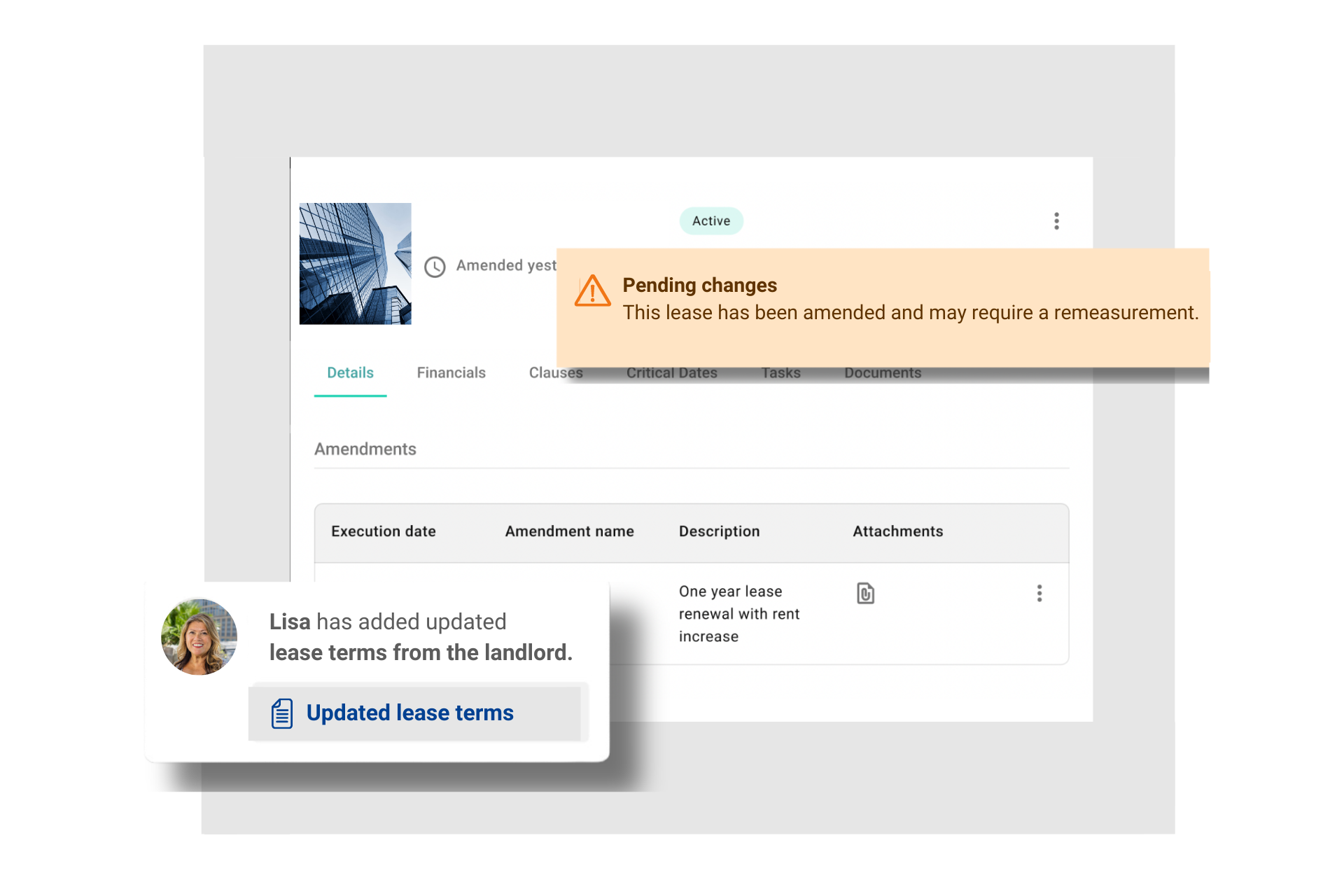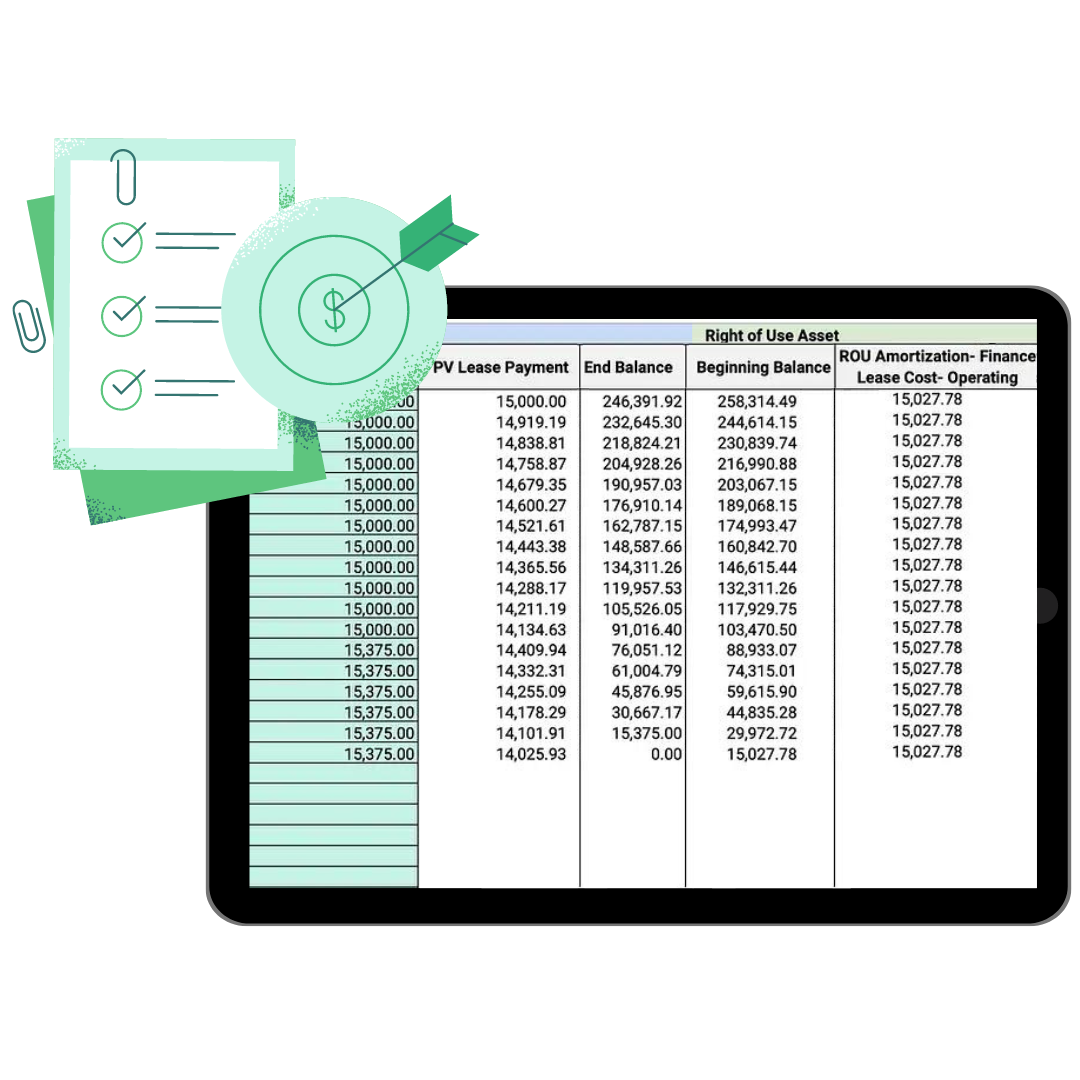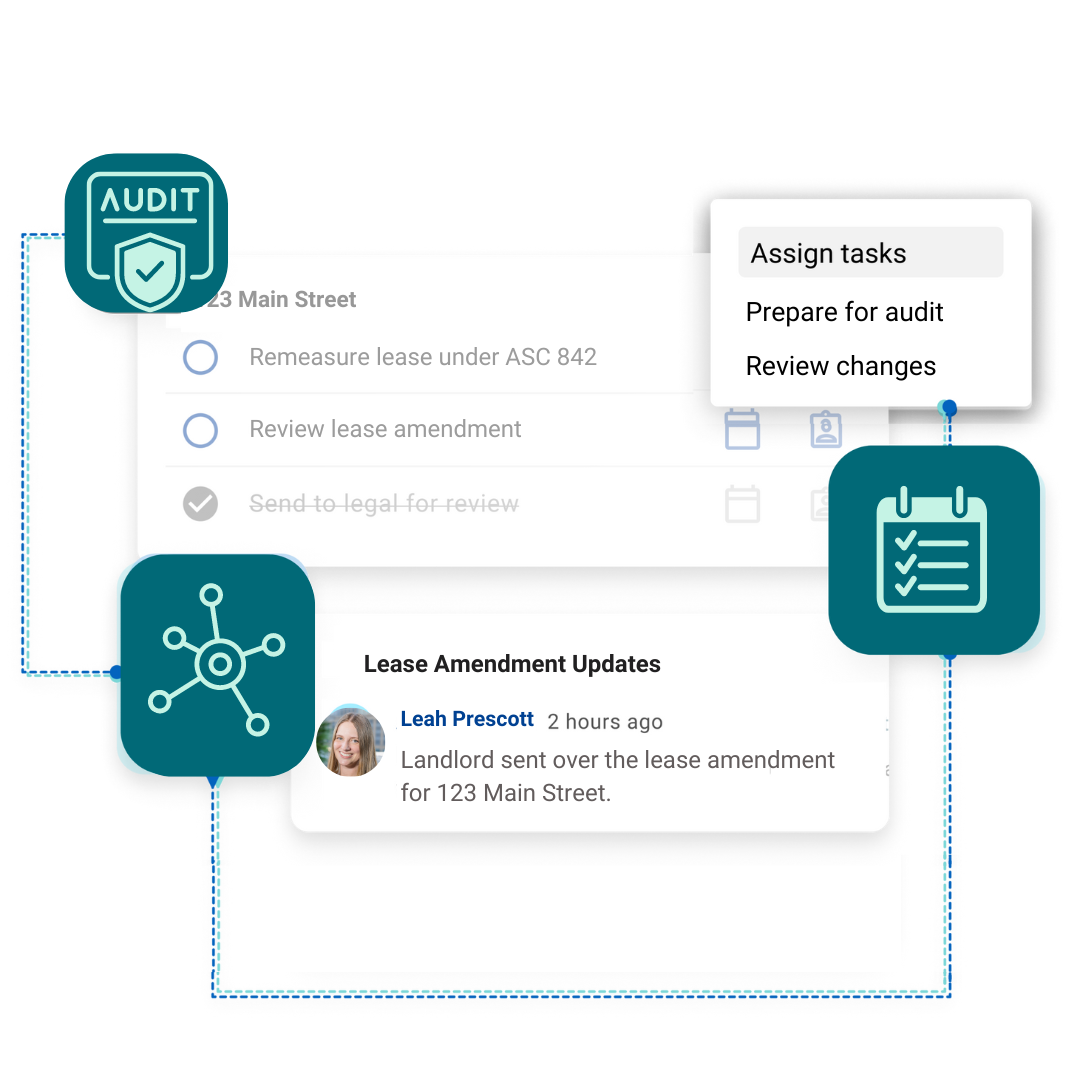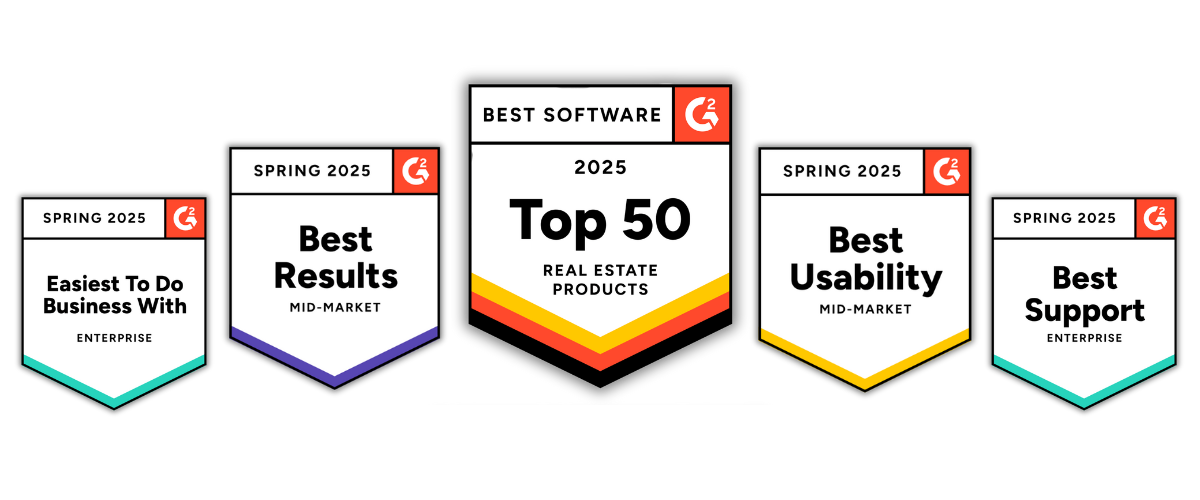FASB ASC 842
Accounting Software
Streamline ASC 842 lease accounting and reporting with Occupier’s powerful solution.
What is FASB ASC 842?
ASC 842 moves lease liabilities to the balance sheet.
Your lease accounting software should automate journal entry creation,
amortization calculations, and lease modifications.

How Occupier Simplifies FASB ASC 842 Compliance
Automated Lease Accounting
Generate accurate lease amortization schedules, build your journal entries and financial reports.
Centralized
Lease Data
Maintain an organized lease portfolio with data a click away and powered by real-time updates.
Seamless Collaboration
Enable finance, real estate, operations and construction teams to work together effortlessly.
Audit Ready Reporting
Ensure FASB ASC 842 compliance with detailed reports for auditors and stakeholders.
Download our excel template
Occupier Lease Amortization Schedule
Get started quickly with our free lease amortization schedule template, designed to simplify your FASB ASC 842 calculations… Our software can automatically generate accurate amortization schedules and monthly journal entries, ensuring compliance and simplifying financial reporting.
Learn about our ACS 842 Compliance Support
Occupier Lease Accounting Audit Services
Streamline your audit process with detailed reports and organized documentation. Our in-house CPA experts provide guidance every step of the way, ensuring a smooth path to ASC 842 compliance.


